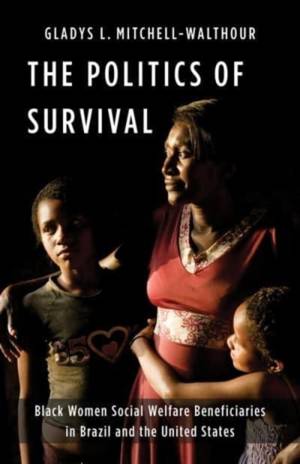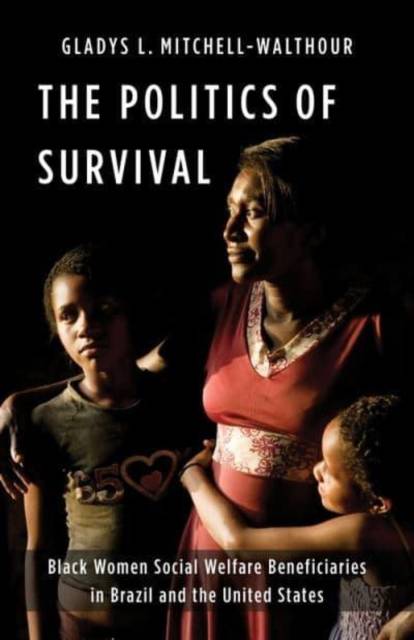
En raison d'une grêve chez bpost, votre commande pourrait être retardée. Vous avez besoin d’un livre rapidement ? Nos magasins vous accueillent à bras ouverts !
- Retrait gratuit dans votre magasin Club
- 7.000.000 titres dans notre catalogue
- Payer en toute sécurité
- Toujours un magasin près de chez vous
En raison de la grêve chez bpost, votre commande pourrait être retardée. Vous avez besoin d’un livre rapidement ? Nos magasins vous accueillent à bras ouverts !
- Retrait gratuit dans votre magasin Club
- 7.000.0000 titres dans notre catalogue
- Payer en toute sécurité
- Toujours un magasin près de chez vous
The Politics of Survival
Black Women Social Welfare Beneficiaries in Brazil and the United States
Gladys L Mitchell-Walthour
220,45 €
+ 440 points
Format
Description
Winner, 2024 Anna Julia Cooper Outstanding Publication Award, Association for the Study of Black Women in Politics
Poor Black women who benefit from social welfare are marginalized in a number of ways by interlocking systemic racism, sexism, and classism. The media renders them invisible or casts them as racialized and undeserving "welfare queens" who exploit social safety nets. Even when Black women voters are celebrated, the voices of the poorest too often go unheard. How do Afro-descendant women in former slave-holding societies survive amid multifaceted oppression? Gladys L. Mitchell-Walthour offers a comparative analysis of how Black women social welfare beneficiaries in Brazil and the United States defy systems of domination. She argues that poor Black women act as political subjects in the struggle to survive, to provide food for their children and themselves, and challenge daily discrimination even in dire circumstances. Mitchell-Walthour examines the effects of social welfare programs, showing that mutual aid networks and informal labor also play important roles in beneficiaries' lives. She also details how Afro-descendant women perceive stereotypes and discrimination based on race, class, gender, and skin color. Mitchell-Walthour considers their formal political participation, demonstrating that low-income Black women support progressive politics and that religious affiliation does not lead to conservative attitudes. Drawing on Black feminist frameworks, The Politics of Survival confronts the persistent invisibility of poor Black women by foregrounding their experiences and voices. Providing a wealth of empirical evidence on these women's views and survival strategies, this book not only highlights how systemic structures marginalize them but also offers insight into how they resist such forces.Spécifications
Parties prenantes
- Auteur(s) :
- Editeur:
Contenu
- Nombre de pages :
- 280
- Langue:
- Anglais
- Collection :
Caractéristiques
- EAN:
- 9780231207669
- Date de parution :
- 27-06-23
- Format:
- Livre relié
- Format numérique:
- Genaaid
- Dimensions :
- 140 mm x 216 mm
- Poids :
- 503 g

Les avis
Nous publions uniquement les avis qui respectent les conditions requises. Consultez nos conditions pour les avis.






